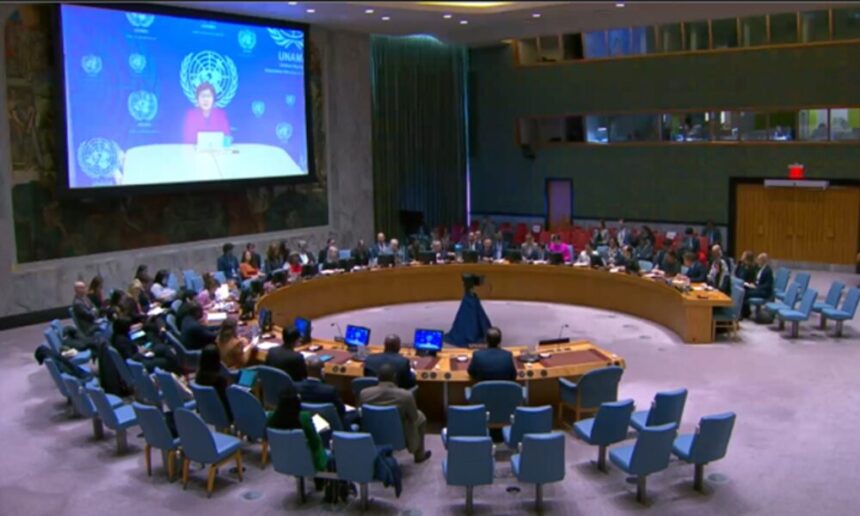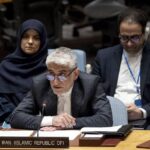Isolation is not the solution, and the international community must continue to engage to build trust for the benefit of the Afghan people, UN envoy Roza Otunbayeva told the Security Council on Thursday.
“Some say that engagement has not worked because these decisions keep coming despite international condemnation,” Otunbayeva said. “But pressure and condemnation do not seem to be working, and if pursued without forward-leaning, principled engagement, it will lead to Afghanistan’s isolation. Isolation is not the solution, and we must continue to engage to build trust for the benefit of the Afghan people. We must be both patient and pragmatic, while also strong and resolute in our principles.”
She said that the Islamic Emirate has continued to pursue their vision of an Islamic system and their interpretation of Afghan culture, which continues to be characterized by unprecedented restrictions on women and on girls.
She noted that as we are now approaching nearly twelve-hundred days without girls having access to formal education beyond the sixth grade, with women and girls facing a progressive erasure from almost all walks of life.
US envoy Linda Thomas-Greenfield said that IEA’s new restrictions targeting women’s medical training denies logic and could represent a death sentence for Afghan women and girls in dire need of potentially lifesaving medical treatment.
“It will have an impact on every mother, every unborn infant – boys and girls – and on the future of Afghanistan,” she said.
The US diplomat said that Afghan experts, particularly women, must be meaningfully included throughout the Doha Process and its working groups. “We cannot allow the Taliban (IEA) to dictate the terms of these meetings or to exclude Afghan experts,” she said.
Addressing the Afghan women, she said: “We will endeavor to match your resolve by developing creative solutions and concrete initiatives that will provide opportunities for education and employment, while we use all the tools at the Council’s disposal to push the Taliban (IEA) to rescind its discriminatory decrees.”
Russian envoy Vassily Nebenzia expressed concern about the ongoing security risks emanating from the persistent terrorist activity of Daesh.
He said that the Islamic Emirate is making efforts against the group, but they can hardly be described as sufficient to definitely eradicate terrorism.
“We see that the fighters are enhancing their presence in the country and they are deliberately escalating the situation there by recruiting new fighters, including foreign terrorist fighters, and carrying out new terrorist attacks targeting representatives of religious and ethnic minorities, including women and children,” he said.
“Given the amount of weaponry left in the country by the Western military, the threat of these weapons falling into the hands of fighters and subsequently spreading throughout the region and beyond is becoming more and more likely,” he warned.
Chinese envoy Fu Cong said that the international community expects the Islamic Emirate to govern moderately, build an inclusive government, and protect the basic rights and interests of all people.
“We hope that Afghanistan will heed the reasonable concerns of the international community and protect women’s rights to education, employment, and public life,” he said. “At the same time, we should realize that the issue of women’s rights is not the entire problem of Afghanistan, nor is it the main source of the current challenges. It is necessary to support the development and reconstruction of Afghanistan, eliminate the root causes of instability, and create favorable conditions for protecting the rights and interests of all people, including women.”
Ahead of the meeting, IEA’s spokesman Zabihullah Mujahid said that the government should have a representative in such meetings.
“We want Afghans to have a seat before discussing Afghanistan. The representative of the current system should be there, defend the position, clear the ambiguities. Then, if the decision is made in the light of a clear light, it will be fair,” said Mujahid.











